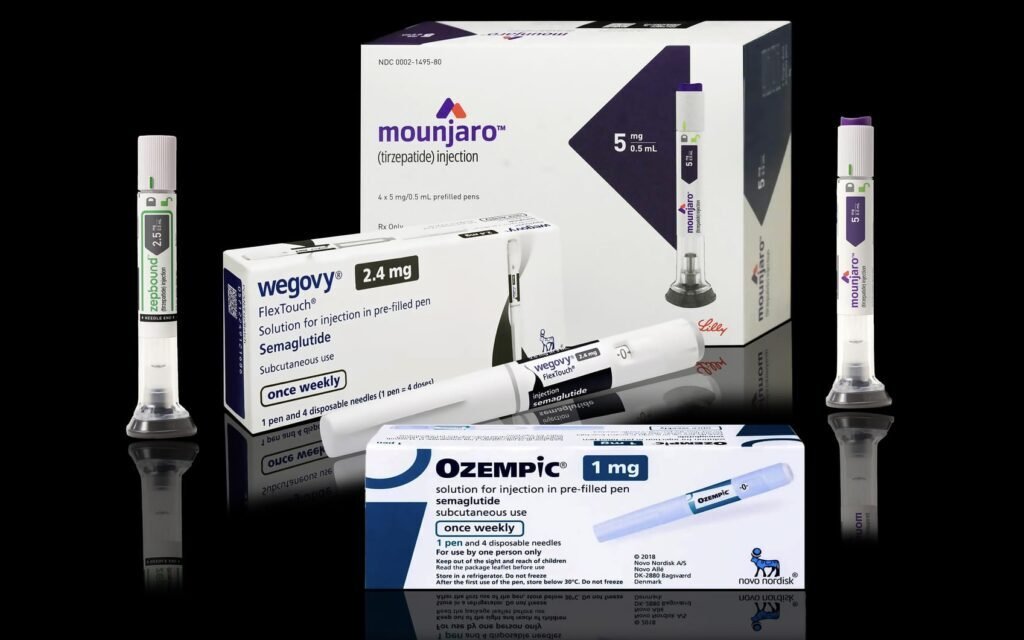08 July 2025
Category: Drug Safety & Regulation
Written by:
Pharmacally Medical News Desk

A recent Public Interest Litigation (PIL) filed by Jitendra Chouksey, founder of FITTR, in the Delhi High Court has sparked nationwide discussion over the misuse of GLP-1 receptor agonists, notably semaglutide (Ozempic, Wegovy) and tirzepatide (Mounjaro, Zepbound), as an aesthetic weight loss agent in India. The court has now directed the Indian drug regulatory authority, the Central Drug Standard Control Organization (CDSCO), to reassess its approval, raising critical questions about drug safety, misuse, and the ethics of cosmetic pharmacology. The petition argues that these have been approved and marketed in India without robust local safety and efficacy trials and are being misused by gym-goers, wellness influencers, gyms, and clinics as a “magic formula” for aesthetic weight reduction.
The petition claims:
- These drugs have been approved in India without robust local clinical trials.
- There is rampant misuse of cosmetic weight loss, driven by social media and unqualified prescribers.
- Users are being exposed to serious side effects like pancreatitis, thyroid/pancreatic cancers, cardiovascular events, and vision loss.
- The phenomenon is driven more by body image trends than actual medical needs, raising a public health concern
Delhi High Court’s Response
On July 1–2, 2025, the Delhi High Court bench of Chief Justice Devendra K. Upadhyaya and Justice Tushar Rao Gedela issued key directions:
- The Central Drugs Standard Control Organisation (CDSCO) and the Drug Controller General of India (DCGI) must review the PIL representation within three months, involving all stakeholders, including doctors, manufacturers, and the petitioner.
- The court allowed the petitioner to submit additional scientific evidence within two weeks.
- Strong remarks were made about the unauthorized promotion of these drugs by gym trainers and influencers, stating it could be a matter for criminal investigation.
- Observed that if regulatory bodies fail to act, the court may entertain another PIL on similar grounds (a liberty granted to the petitioner)
Why Is This Significant for India?
India is witnessing a surge in aesthetic- and fitness-focused drug use, especially among urban youth. While GLP-1 RA drugs are proven effective for managing obesity in specific populations (e.g., those with diabetes or severe obesity), their off-label use for cosmetic slimming poses several challenges:
- Indian experts say that genetic, dietary, and lifestyle differences could lead to different side‑effect profiles in Indian patients, warranting specific trials.
- No Indian-specific safety data exists yet for long-term use in non-diabetic individuals.
- The drug retail system lacks strict control, leading to unsupervised access.
- The Indian market is highly price-sensitive, and cheaper versions or black-market imports could aggravate misuse.
- The trend is amplified by social media influencers, leading to the normalization of injectable “slimming shots” among teenagers and young adults.
Furthermore, India has previously banned irrational drug combinations lacking local trial data. This PIL could establish a model for evaluating imported drug approvals through an Indian regulatory lens, balancing public demand with safety.
Next steps & possible outcomes
Review by DCGI/CDSCO
Within three months, they must evaluate:
- Whether local trials and safety data justify the drugs’ weight-loss approvals
- If marketing is overly permissive or misleading
- Whether stricter controls, a contraindication for non-diabetics, brand-label rewriting, or pharmacovigilance systems are needed
Potential outcomes
- Approvals may be maintained with added safeguards.
- Labeling could be tightened, restricting use to diabetics or those with morbid obesity under supervision.
- Non-diabetic use might be revoked or suspended, pending new trials.
- Enforcement actions may be directed against gyms/clinics illegally prescribing or administering them.
Further legal action
If the government/regulators fail to act satisfactorily, the petitioner can file another PIL to compel stricter measures or revocation.
Summary
The PIL is a major challenge to the current GLP-1 RA drug approval, allowing them to be used for weight loss, raising critical issues such as off-label usage, aesthetic-driven misuse, lack of India-specific safety data, and commercialization without adequate oversight. The Delhi High Court’s directive to the CDSCO/DCGI to act by early October 2025 will be a crucial moment. Their decision, ranging from maintaining the status quo with safety warnings and limiting to prescription-only access, to revoking the weight-loss indication, could significantly shape the future of anti-obesity drug regulation in India.
References
Delhi HC seeks regulator’s reply after PIL questions Ozempic, Mounjaro nod, The Economic Times, 03 July 2025, https://economictimes.indiatimes.com/industry/healthcare/biotech/pharmaceuticals/delhi-hc-seeks-regulators-reply-after-pil-questions-ozempic-mounjaro-nod/articleshow/122211529.cms?utm_source=chatgpt.com
Decide within 3 months’: Delhi HC tells CDSCO on plea against use of diabetes drugs in weight management, The Healthy Indian Project (THIP), 02 July 2025, https://www.thip.media/news/decide-within-3-months-delhi-hc-tells-cdsco-on-plea-against-use-of-diabetes-drugs-in-weight-management/120177/?utm_source=chatgpt.com
Delhi HC ‘alarm’ over misuse of diabetes drug for weight loss, News Arena India, 03 July 2025, https://newsarenaindia.com/nation/delhi-hc-alarm-over-misuse-of-diabetes-drug-for-weight-loss/49182?utm_source=chatgpt.com
